Curricular and Teaching Innovation Grants
Proposals are invited from tenured and tenure-track faculty in the Irving K. Barber Faculty of Science who are interested in enhancing the classroom experience by adopting new technologies or other pedagogical approaches that challenge and encourage students. Up to three grants are given annually depending on the revenues generated by the Irving K. Barber Endowment Fund.
2023/24 applications will be posted to this page in December 2023.
2023 Recipients
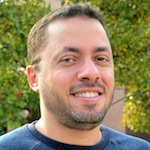 ABDALLAH MOHAMED
ABDALLAH MOHAMED
Associate Professor of Teaching
Computer Science
Department of Computer Science, Mathematics, Physics and Statistics
Project
Adaptable, Expandable Learning Modules for Advanced Computer Programming Education
This project aims to develop inclusive, adaptable learning material that can be customized on-the-fly to meet the needs of various instructors and a broader student community while maintaining similar learning outcomes. To achieve this, the learning material will consist of several parallel versions, allowing learners to personalize their experience through four customization dimensions: Programming Language (Java, Python, or C++), Application Domain for coding exercises (Math, Physics or Statistics), Instructional Language (English or French), and Depth (introductory or advanced).
To illustrate, let’s focus on two customization dimensions as an example: 1) Programming Language, with support for Java and Python, and 2) Instructional Language, with support for English and French. Within our newly developed learning material, each block of content, such as a paragraph or an exercise, will be available in up to four parallel versions: (Java in English), (Java in French), (Python in English), and (Python in French). Learners will have the ability to instantly switch between these versions using an intuitive user interface, allowing them to compare and contrast the different versions, such as identifying differences and similarities between Java and Python, or simply select the version that aligns best with their preferences.
In addition, the learning material will be designed to facilitate future customization by instructors. They will have the flexibility to easily expand the customization options and content, such as adding support for additional programming languages, to meet evolving demands.
The new learning materials will be freely accessible on LearnCoding (learncoding.ok.ubc.ca), a learning platform created by the Lead Applicant, in order to support the open education resources development at UBC Okanagan.
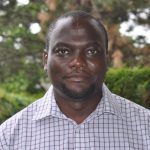
PAUL TSOPMÉNÉ
Assistant Professor of Teaching
Mathematics, Statistics
Department of Computer Science, Mathematics, Physics and Statistics
Project
Developing a Textbook for Integral Calculus with Applications to Life Sciences
This project will create an open-access textbook for MATH 103-Integral Calculus with applications to life sciences. The text will present calculus concisely and meaningfully so that students can understand the concepts they are learning and apply them to real-life situations. This text will bring together material (such as differential equations, linear algebra, probability, and statistics) that is not usually found in regular calculus textbooks and present them in the context of real-life problems. It will address the needs of all students regardless of their algebraic skills by providing all necessary background and detailed step-by-step solutions. Making the book an open education document will ensure all students can access the resources.
Co-applicants
Wayne Broughton, Associate Professor (Mathematics), Department of Computer Science, Mathematics, Physics and Statistics
Chad Davis, Lecturer (Mathematics), Department of Computer Science, Mathematics, Physics and Statistics
Michael Noonan, Assistant Professor, Department of Biology
Past recipients
Advancing the transferable critical-thinking skills of students by improving problem-based learning techniques used in large classes.

It is increasingly recognized that universities should provide students with not only modern discipline-specific knowledge, but also skills that are transferable across various disciplines. Critical thinking, problem solving, and written communication are consistently listed among the top ten of such highly desirable “employability skills” that recent university graduates lack. This project will create new learning modules aimed at improving critical-thinking skills (CTS) of students by employing evidence-based pedagogical techniques. Two upper-level courses servicing Biology, Chemistry, and Biochemistry and Molecular Biology undergraduate and graduate programs will be transformed to accommodate these innovative methods. Both these courses already use student-focused active learning in small teams that has a demonstrable positive effect on problem-solving skills. The proposed improvements will support experiential learning of students and advance their CTS. The newly developed course materials will be made freely accessible to all interested instructors to support the open education resources development at UBCO.
ANDIS KLEGERIS
Professor, Biology
Creation of Instructor and Student Study Virtual and Hands-On Resources to Accompany our OpenSource Pathology textbook with a specific focus of being inclusive and student-centric.

This project is designed to add value to the Open Source Pathology textbook being created by team members at other BC institutions*.
The focus is on setting up a student-run Human Biology and Disease Center and creating accompanying instructor and student study resources. Interactive resources are a highly coveted asset and will include: Q&A, picture and text flashcards, 3D rotatable image embedded case studies, hands-on models, and spotlights that highlight contributions by traditionally over-looked members of society (including BIPOC and LGBTQ2S+).
Anatomy, Physiology, and Pathology are central features of many biology courses taken by students entering Health Care and Education professions. Currently, there are 950 students enrolled in UBCO anatomy, physiology, pathology, virology, immunology, cancer, and human disease-based courses.
This project’s funding will be used to hire students that will be given valuable opportunities to build writing, creative design, computer and teaching skills, as well as knowledge of various human pathologies.
ZOË SOON
Associate Professor of Teaching
Biology
* Jennifer Kong (JYK), Ph.D., Faculty, School of Computing Academic Health Sciences, Dept. of Basic Health Sciences, BCIT, Dept. of Pathology and Laboratory Medical Sciences, Faculty of Medicine, UBCV; Helen Dyck (HD), MSc., Manager of David Hardwick Pathology Learning Centre; Jonathan Bush (JB), MD, FRCPC, Clinical Assistant Professor, Director of David Hardwick Pathology Learning Centre
Creating Inclusive and Indigenous Content to Modularize CS1 Curriculum
 BOWEN HUI Associate Professor of Teaching Computer Science, Mathematics, Physics, and Statistics |
 KRISTEN PIKE Associate Director Indigenous Programs & Services |
 RACHEL ANDREYCHUK Indigenous Student Advisor Indigenous Programs & Services |
Due to the increased popularity of coding, many students from different backgrounds have taken an interest in pursuing computer science. Our first year programming (CS1) course is diverse in its student make-up in terms of gender, race, and year of study. Many students take this course due to their degree requirement (e.g., Math and Data Science majors) or because they are exploring ways to combine computer science within their own discipline (e.g., Biology, Psychology, Linguistics, Education). Unfortunately, many CS1 textbooks use outdated examples in stereotypical domains such as cars, tools, and math equations – making it hard for students to relate to. The goal of this project is to develop inclusive material for our underrepresented student populations, with a special focus on indigenizing the course examples and practice exercises. Furthermore, the new course materials will be made freely available for public use.
Stimulation of Academic Motivation through a Habit-forming Online Learning System
 ABDALLAH MOHAMED Assistant Professor of Teaching Department of Computer Science, Mathematics, Physics and Statistics |
The goal of this project is to boost academic motivation through an interactive, reward-based online learning system that aims to promote habit formation.
In the proposed project, we will develop a web platform that uses gamification and implements a variety of motivational strategies that aim to encourage self-improvement and healthy competition among peers. This includes the use of progress bars, leaderboards, along with several voluntary features, including randomised extrinsic rewards such as tokens to aid habit formation without reducing feelings of autonomy and competence.
The proposed application will be tested in a first year programming course. The design will have a low entry barrier to make the application more appealing and fun to use.
The last phase of this project involves questionnaires and follow-ups to assess the impact of the application and assess the possibility of using the application for other courses.
Transforming the workflow of class-based research to engage undergraduate students in open science literacies
 JASON PITHER Associate Professor Department of Biology |
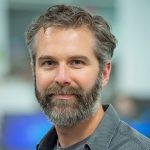 MATHEW VIS-DUNBAR Southern Medical Program Librarian Library Services |
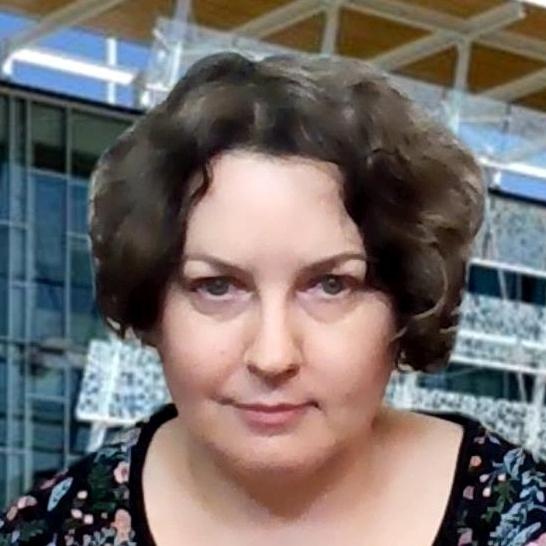 SHARON HANNA Open Science Librarian (former position) Library ServicesSupport Analyst (current position) Centre for Teaching and Learning |
 TYLER DONNER Lab Program Manager Department of Biology |
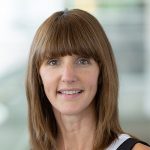 TRISTYN HAY PhD Students, Lab Program Manager Department of Biology |
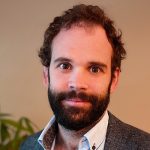 MICHAEL NOONAN Assistant Professor Department of Biology |
Complementing our efforts to teach Open Science (OS) principles and practices to 1st and 2nd year Biology students, we will enable students to put what they’ve learned into practice. We will develop a series of staged, or modularized lab report templates accompanied by complementary learning materials that situates the model within a pedagogical structure of praxis. This innovative model will emulate the process of a Registered Report where one’s hypothesis and methods are submitted and reviewed independently of data collection and analysis, to help limit bias and redirect reward and measures of success to sound science, transparency, and honesty over novelty and achieving expected experimental outcomes. We will produce all materials, including the submission tools, protocols, supplementary learning materials, and instructor resources for implementation, in systems that facilitate porting to other aligned disciplines. All material will be openly licensed for distribution and adaptation.
Designing Virtual Labs for Improved Student Engagement and Success
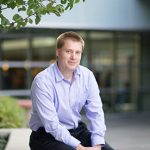
RAMON LAWRENCE
Professor, Computer Science
Irving K. Barber Faculty of Science
Labs are used in scientific fields to provide hands-on, experiential training for students. Traditional labs with scheduled physical space do not reflect the current student priorities of flexibility and on-demand learning. The result is poor student attendance, diminished learning outcomes, and the under-utilization of precious campus space. The goal is to develop a platform for deploying and delivering virtual labs supported by technology that allows students to have the same learning outcomes in a more flexible way. The initial target is computer science courses, specifically the database course, but the approach will be generalizable to other courses. The impact will be increased student engagement while reducing the number of scheduled labs, which will help decrease the demands on teaching assistant resources and physical space.
Creative scientific instrument building for enriched student experience
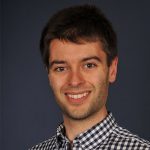
ROBERT GODIN
Assistant Professor, Chemistry
Irving K. Barber Faculty of Science
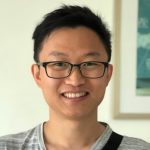
ISAAC LI
Assistant Professor, Chemistry
Irving K. Barber Faculty of Science
This project aims to develop the first course in the Irving K. Barber Faculty of Science based on constructivism, an emerging trend in education which focuses on student learning and engagement. The learning occurs as students are actively involved in the process of (physically) constructing knowledge and skills as opposed to passively receiving information in traditional prescribed labs. In teams, students will learn new technical skills and practice problem-solving to make scientific tools and instruments used in their science program. A positive learning experience is fostered by the tangible, hands-on approach which improves learning. This will be an experiential learning course that will foster innovation and creativity and eventually be available to all undergraduate and graduate students as an elective in the Irving K. Barber Faculty of Science.
Creating a Platform for Understanding Economics and Political News

JULIEN PICAULT
Associate Professor of Teaching, Economics
Irving K. Barber Faculty of Arts and Social Sciences
In the current era of fake news and alternative facts, students have difficulty navigating the news that is a necessary complement to economics courses. This project proposes the creation of a platform dedicated to selecting, providing, de-jargonizing, contextualizing, decrypting and explaining some current economics and political news to economics students. This platform will provide students with necessary real-life examples of economic concepts, but it will also show students how to make sense of current economics and political news. The platform will be designed to support first-year economics students’ learning, but will potentially be useful for any students curious about the news, thus having a broader social science appeal.
2019
 Course Modernization through Gamification and Peer-Designed Content
Course Modernization through Gamification and Peer-Designed Content
First-year students often find introductory computer science challenging, and struggle to succeed. The goals of this project are to use gamification to offer alternative ways for students to earn marks, and to involve students to develop novel examples that are interesting and relevant to their peers in order to make learning more enjoyable.
BOWEN HUI
Instructor, Computer Science
Best Practices in Experiential Learning in Lab-based Learning Environments: Engaging Students with Environmental Science at the 100 Level
 This project aims to explore how typical science “labs” can be designed to be experiential learning opportunities. This will be done in the context of creating a new set of laboratory exercises for a first-year environmental science course.
This project aims to explore how typical science “labs” can be designed to be experiential learning opportunities. This will be done in the context of creating a new set of laboratory exercises for a first-year environmental science course.
CRAIG NICHOL
Senior Instructor, Earth, Environmental & Geographic Sciences
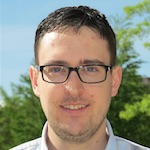 STUART MACKINNON
STUART MACKINNON
Laboratory Manager, PhD candidate, Earth, Environmental & Geographic Sciences
Practices of Debate and Dialogue: Building Argumentation Skills Through Experiential Learning (PHIL 2xx Science, Technology and Society)
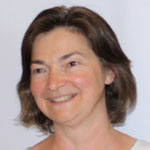 This project involves creating a new course that teaches philosophical concepts via experiential learning methodologies, such as games, plays, and other interactive approaches that have not been traditionally used in such courses. The idea is to promote imagination, inquiry, and engagement as foundational features of teaching topics at the intersection between history and philosophy of science and social and political philosophy.
This project involves creating a new course that teaches philosophical concepts via experiential learning methodologies, such as games, plays, and other interactive approaches that have not been traditionally used in such courses. The idea is to promote imagination, inquiry, and engagement as foundational features of teaching topics at the intersection between history and philosophy of science and social and political philosophy.
MANUELA L. UNGUREANU
Associate Professor, Economics, Philosophy & Political Science
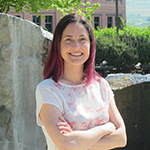 Scaffolding Mastery in First Year Chemistry Laboratories
Scaffolding Mastery in First Year Chemistry Laboratories
The goal of this project is to redesign the first-year chemistry laboratory curriculum to provide students with experiential learning activities that reinforce the practical application of their chemical knowledge. Dr. Freeman will incorporate strategic learning objectives that will draw on contextually relevant lecture material, emphasize the scientific process over chemical outcome, and provide greater opportunity for group work and collaboration.
TAMARA FREEMAN
Instructor, Chemistry
 Improving Student Engagement and Learning in an Introductory Programming Course using Flipped Classrooms
Improving Student Engagement and Learning in an Introductory Programming Course using Flipped Classrooms
First-year students usually find it difficult to learn programming and develop the relevant problem-solving skills. This may lead to high failure and attrition rates. The aim of this project is to implement the flipped-classroom model and problem-based learning supported by an online code visualization app in a first-year programming course. The Curricular Innovation Award will be used to assist the development of a learner-centred environment where students will not only learn algorithmic thinking and programming concepts but they will also develop lifelong skills including critical thinking, creativity, and teamwork.
ABDALLAH MOHAMED
Instructor, Computer Science
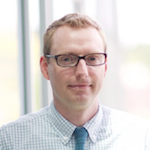 A Hybrid Approach to Team-Based Learning, Open Science, and Professional Presentations
A Hybrid Approach to Team-Based Learning, Open Science, and Professional Presentations
The goal os this project is to sustainably redesign a key course in the psychology curriculum: Introduction to Research Methods and Design (PSYO 270). This required course for all psychology majors is of strategic importance and offers the potential for numerous downstream benefits as students progress into their upper-level psychology coursework. Introduction to Research Methods and Design (i.e., Research Methods) has traditionally been taught as a large lecture course with enrolments of 200-250 students. After joining the UBC faculty in January 2016, Dr. Wirtz was offered the opportunity to teach the course and decided to pilot test several structural changes to evaluate the feasibility of a full and sustained course redesign.
DERRICK WIRTZ
Senior Instructor, Psychology
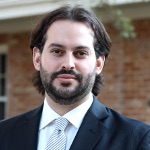 Economics and the Media
Economics and the Media
The primary objective is to create a course in which students will be trained to produce high-quality economic news articles which may be published in local media. Through Dr. Picault’s discussion with KelownaNow’s editors, it was agreed that articles which meet their standards would be published on their website. This represents a unique opportunity for students to apply their economics skills and knowledge while providing valuable information to the local community of Kelowna.
JULIEN PICAULT
Instructor, Economics
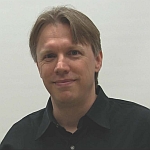 Confronting Misconceptions Through Experiential Learning in First Year Physics
Confronting Misconceptions Through Experiential Learning in First Year Physics
The goal of this project is to provide a natural venue in which students can confront and revise the myriad misconceptions that beginning students hold regarding the core concepts of first year physics. Students learn physics by doing it, rather than listening to it. Dr. Hopkinson will use this award to develop interactive opportunities for students to use technology to confront misconceptions through workshops and group problem solving sessions.
JOHN HOPKINSON
instructor, Physics
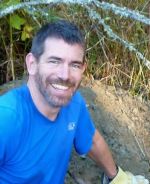 Enhancing Statistical Literacy and Infusing Statistical Best Practices Throughout Biology Curriculum
Enhancing Statistical Literacy and Infusing Statistical Best Practices Throughout Biology Curriculum
The primary objective is to improve statistical literacy among graduates of the undergraduate Biology program. The secondary objective is to broaden the marketable skill set of Biology students by training them in the use of “RStudio,” a free, open-source software environment for statistical computing and graphics that is rapidly becoming the global standard in both the private and public sector.
JASON PITHER
Associate Professor, Biology & Physical Geography
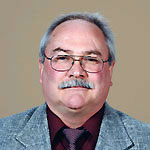 A Proposal to Create a UBCO Heritage Management Certificate
A Proposal to Create a UBCO Heritage Management Certificate
Dr. Garvin’s objective is to create a flexible, interdisciplinary Heritage Management Certificate with a new innovative, hands-on internship course or archeological field school option worth 12 credits. The internship will involve working with an institution on a project related to Heritage Management while the field school would require a minimum of 12 credits in archaeology field courses from a variety of archaeological field schools. The Award will be used to consult with potential internship/archeological field school community partners and institutions, develop the new course and shepherd the program through the curriculum committees and Senate. Evaluations of the program are planned with the participating institutions/community partners and the students after completion of the internship or field school and after completion of the HMC program by each student. Graduated students will also be tracked to determine their success in finding employment in a field related to heritage management or to continuing their education further.
RICHARD GARVIN
Associate Professor, Anthropology
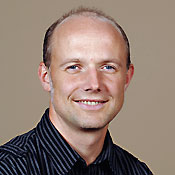 Using the ‘Flipped Classroom’ approach to allow experiential learning in a 4th year capstone biochemistry course
Using the ‘Flipped Classroom’ approach to allow experiential learning in a 4th year capstone biochemistry course
Dr. Klegeris will shift the focus in the instruction of the 4th year biochemistry capstone course BIOC 407 from a content-centred to a learner-centred approach which will allow students to develop real-life skills including team-work, problem-solving, critical-thinking, peer-evaluation and metacognitive skills. He will make the students responsible for learning the course content independently to free up time for experiential learning and development of practical skills. This will be accomplished by developing six course content packages for independent study, developing questions for quizzes and examinations to accompany each course content package, developing a rubric for objective peer evaluation of student presentations, designing questions for metacognitive exercises and an online tool for administering and monitoring these questionnaires and redesigning existing Problem Based Learning cases for the course. Dr. Klegeris will monitor student satisfaction with the new course delivery and will write up the results for publication as well as presenting at local and international meetings.
ANDIS KLEGERIS
Associate Professor, Pharmacology
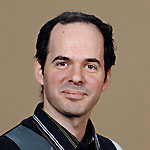 Improving team-based learning in a data structure course
Improving team-based learning in a data structure course
Dr. Lucet first introduced team-based learning in COSC 222: Introduction to Data structure in 2014, but noted several gaps that need to be addressed. He will use the Curriculum Innovation Award to create a blended flexible on-demand learning environment in the course that is customized to student learning needs and delivered in a group-based setting. He will develop videos to explain key data structures in the course, quizzes to assess student understanding, implement fully open-source codes making online animations that illustrate data structures readily available to students, generate self-evaluation quizzes for iClicker and Connect and use learning analytics to detect students at risk of failing the course and provide customized support. He will present his results at local and international computing education conferences.
YVES LUCET
Associate Professor, Computer Science
 Low Temperature Physics: Theory and Practice
Low Temperature Physics: Theory and Practice
The objective of this proposal is to develop a new and innovative course in low-temperature physics to be offered as an upper-level elective for physics majors. This course will address the lack of breadth in upper level Physics. It will also provide innovative hands-on and research-based activities allowing skills development that is rarely offered to students at an undergraduate level. Dr. Bobowski will augment class lectures with peer presentations and written reports that will be assessed using a peer review system that mimics the review process used by refereed journals. Plans for quantitative analysis of the value of this student peer review process are being discussed with the Centre for Teaching and Learning
JAKE BOBOWSKI
Instructor, Physics
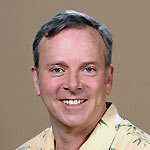 Interactive Brain Dissection Laboratory
Interactive Brain Dissection Laboratory
The objective of this project is the development of a modular interactive human brain dissection laboratory using videos and still photographs coupled with interactive exercises online to teach neuroanatomy. Dr. Mathieson will work with a consultant knowledgeable in Flash or HTML5 programming to design overlay text windows that will describe highlighted areas of the brain, allowing the student to answer questions about the structures. The modules are designed specifically for Biology courses taught by Dr. Mathieson, but will be made available to other instructors in Psychology and Human Kinetics and the laboratory will be presented at an Improving University Teaching Conference to be held in Vancouver in July 2014. Student learning will be via monitoring student performance on midterm tests and special lab quizzes.
BRUCE MATHIESON
Associate Professor, Biology
 Creative Learning Concurrent Programming
Creative Learning Concurrent Programming
Dr. Lucet will use a tool to allow students to creatively solve concurrent programming challenges. The tool will automatically check the validity of algorithms that run several parallel codes, and will determine whether the algorithm is correct. If it is not, the tool will provide feedback on the type of error and give an example of sequential code execution that gives the wrong output. Using the tool, students will be able to understand their mistake, improve their solution, and propose another solution that fixes the error.
YVES LUCET
Associate Professor, Computer Science
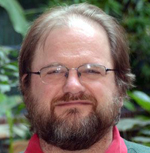 Games in History
Games in History
Dr. Nilson’s Games in History project will develop historical situation games for use in the classroom. The games require students to take on the role of historical figures and run classroom sessions. The project is based on Reacting to the Past – a series initiated by Barnard College. Dr. Nilson has successfully adapted other historical games for his classroom which increased student participation and engagement and greatly enhanced learning.
BEN NILSON
Associate Professor, History
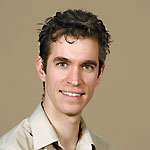 Deliberate Practice in Physics
Deliberate Practice in Physics
Dr. Rosolowsky is partnering with the Carl Weiman Science Education Initiative (CWSEI) at the Vancouver Campus to revise Calculus-Based Physics. The revision will bring modern, inquiry-based learning methods to the lecture and laboratory portions of the course. Under the new structure, lecture time will be primarily small group learning activities, with content learned through readings and online content reviewed before class. Laboratory time is being restructured to focus on the process of science rather than the particulars of Newtonian mechanics. Preliminary work in CWSEI studies shows these changes will result in a deeper understanding of the material, increased student engagement and enhanced abstract reasoning skills.
ERIK ROSOLOWSKY
Assistant Professor, Physics
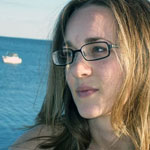 Digital Media and the Humanities, Phase II
Digital Media and the Humanities, Phase II
In the second phase of her Digital Media and Humanities project, Dr. Stites Mor continues to develop digital infrastructure and course programing that will enable students to participate in digital media production across the humanities disciplines and to give them access to technology necessary to create student-centred digital humanities projects.
JESSICA STITES MOR
Assistant Professor, History
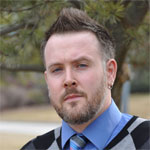 Public Sociology Colloquium
Public Sociology Colloquium
In our time, there are a myriad of ways to obtain information, but accessing information and understanding important social issues can be challenging. Dr. Christopher Schneider is bridging the gap between the academic and public sphere through the creation of an undergraduate course that brings together sociologists, students and members of the public to raise awareness and discuss important contemporary social issues.
CHRISTOPHER SCHNEIDER
Assistant Professor, Sociology
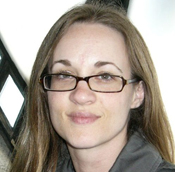 Digital Media and the Humanities
Digital Media and the Humanities
As a cultural historian, Dr. Stites Mor tries to expose her students to a wide variety of audio and visual materials to add experiential depth to their learning. Through the Digital Media and the Humanities Pilot Project, Dr. Stites Mor is developing the infrastructure and course programming that will enable students to integrate digital media production into their humanities education. She has also created a new course entitled “Digital Media and History” that teaches students about the role of digital media in pushing the limits of historical research and communication and gives them a hands-on introduction to the creative practice of documentary filmmaking.
JESSICA STITES MOR
Assistant Professor, History
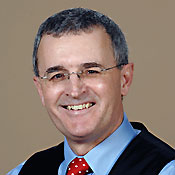 Interaction with Legal Professionals
Interaction with Legal Professionals
Dr. Carl Hodge’s lecture-seminar course Contemporary Issues in Law introduces students to the practice of law through interaction with working legal professionals like notable guests Chief Justice Beverley McLachlan and former Puisne Justice Frank Iacobucci of the Supreme Court of Canada. The course challenges students to reconsider their preconceptions of justice by confronting real-world legal cases and discovering how they might contribute to the Canadian legal profession.
CARL HODGE
Professor, Political Science
 Preparing Students for Realistic Workplace Challenges
Preparing Students for Realistic Workplace Challenges
Dr. Andis Klegeris’ problem-based learning exercises will enable biochemistry students to study real-life situations and learn how to identify problems, research available information and discover possible solutions. This learning approach prepares students for the realistic workplace challenges they will face on a daily basis after graduating from university.
ANDIS KLEGARIS
Assistant Professor, Pharmacology
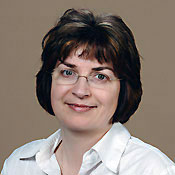 Embedded Devices to Increase Group Communication
Embedded Devices to Increase Group Communication
Dr. Patricia Lasserre is systematically testing whether student use of an embedded device can reduce the limitations of group communication during team-based learning exercises. She predicts that the student’s ability to view all team members’ input simultaneously and to have equal opportunity to actively engage in problem solving will increase interaction and participation in her first year computer programming course.
PATRICIA LESSERRE
Associate Professor, Computer Science
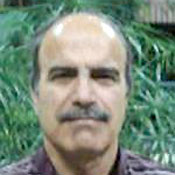 Promoting Cross-Cultural Communication
Promoting Cross-Cultural Communication
Dr. Javad Tavakoli’s foundational mathematics course promotes cross-cultural communication between Indigenous thought and traditional European mathematical training. He is developing course resources to integrate traditional analysis-synthesis learning techniques common to many Indigenous cultures and to emphasize the relationship between different mathematical concepts and an integrated knowledge of mathematics.
JAVAD TAVAKOLI
Associate Professor, Mathematics
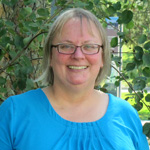 Creating Informed Voters
Creating Informed Voters
What is one of the most important responsibilities students will face in the future? Dr. Kavanagh’s answer would be to vote and she insists that students may be required to contemplate increasingly complex scientific issues when making electoral decisions. She incorporated problem-based learning techniques into her Introduction to Physical Geography course to provide both arts and science undergraduates with a clear understanding of the process of scientific inquiry.
TRUDY KAVANAGH
Assistant Professor, Geography
 Team-based Learning Provides Essential Confidence
Team-based Learning Provides Essential Confidence
First year computer programming courses often have high attrition rates as many students find it a challenge to understand programming concepts and to produce creative solutions to problems. Dr. Lasserre found that a large amount of practice is necessary to develop the problem-solving skills and logical reasoning required to be successful in the course. She integrated team-based learning into the classroom to provide her students with the essential confidence and practice they need.
PATRICIA LESSERRE
Associate Professor, Computer Science
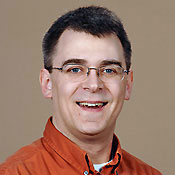 3D Displays Replace Rote Memorization
3D Displays Replace Rote Memorization
Dr. McNeil has developed a new, user-friendly computer program, permitting the interactive visualization and examination of molecular and protein structure. In guided inquiry assignments, students use this program explore such structures for themselves, thereby crafting their own understanding of protein structure/function relationships, rather than memorizing textbook explanations and static images. Students also have the opportunity to create their own custom-built 3D representations for use in presentations and web pages, in which they present and discuss their conclusions with other students.
STEPHEN MCNEIL
Assistant Professor, Chemistry